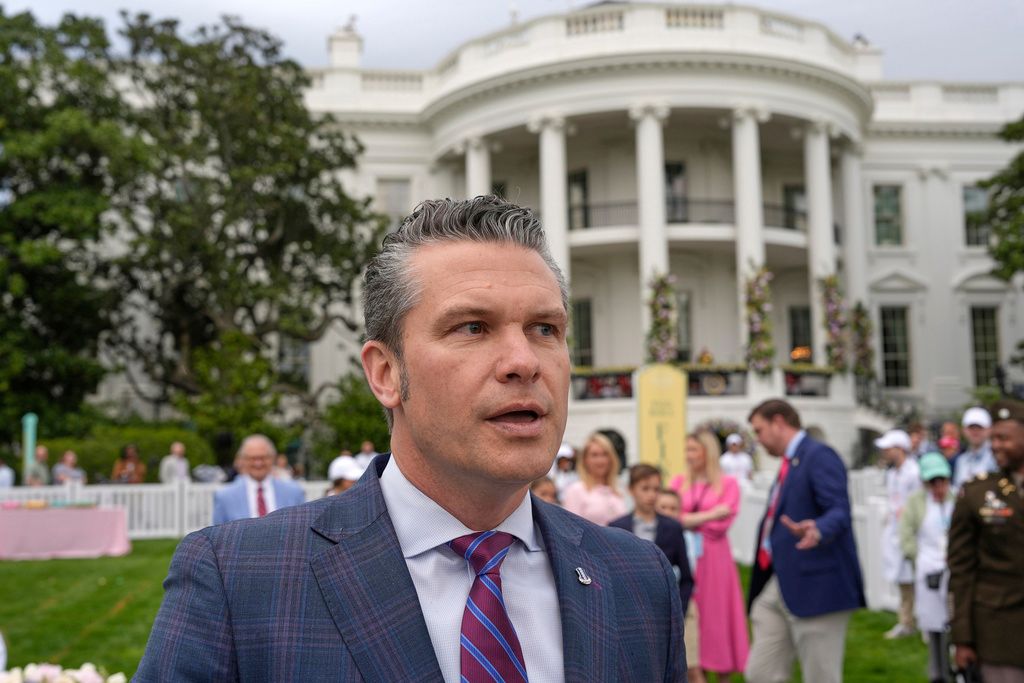
Defense Secretary Pete Hegseth speaks on the South Lawn of the White House before President Donald Trump and first lady Melania Trump participate in the White House Easter Egg Roll Monday, April 21, 2025, in Washington. (AP Photo/Alex Brandon)
WASHINGTON (AP) — Defense Secretary Pete Hegseth is defending himself against a second assertion that he shared classified material through an unapproved and unsecured network — this time taking airstrike information from a military communications channel and sharing it in a chat with his wife, his brother and others.
Hegseth pulled the information he posted in the Signal chat from a secure communications channel used by U.S. Central Command. NBC News first reported that the launch times and bomb drop times of U.S. warplanes about to strike Houthi targets in Yemen — details multiple officials have said are highly classified — came from the secure channel.
A person familiar with the chat confirmed that to The Associated Press.
The information was identical to the sensitive details of the Yemen operations shared in the first Signal chat, the person said, speaking on condition of anonymity out of fear of reprisal for speaking to the press.
That initial leaked chat included President Donald Trump's top national security officials. It accidentally included the editor of The Atlantic and has caused an investigation by the inspector general in the Defense Department.
Hegseth has not directly acknowledged that he set up the second chat, which had more than a dozen people on it, including his wife, his lawyer and his brother Phil Hegseth, who was hired as a senior liaison to the Pentagon for the Department of Homeland Security. Instead, the secretary blamed the disclosure of the second Signal chat on leaks from disgruntled former staff.
Hegseth has aggressively denied that the information he posted was classified. Regardless of that, Signal is a commercially available app that is encrypted but is not a government network and not authorized to carry classified information.
"I said repeatedly, nobody is texting war plans," Hegseth told Fox News on Tuesday. "I look at war plans every day. What was shared over Signal then and now, however you characterize it, was informal, unclassified coordinations, for media coordinations and other things. That's what I've said from the beginning."
Based on the specificity of the launch times, that information would have been classified, former Defense Secretary Leon Panetta told the AP in a phone interview.
"It is unheard of to have a secretary of defense committing these kind of serious security breaches," said Panetta, who served during the Obama administration, and who also was director of the Central Intelligence Agency during Obama's term. "Developing attack plans for defensive reasons is without question the most classified information you can have."
In the past week, Hegseth has fired or transferred six men in his inner circle, including his aide Dan Caldwell; his deputy chief of staff, Darin Selnick; and the chief of staff to Deputy Defense Secretary Stephen Feinberg, Colin Carroll.
Hegseth confirmed Tuesday that chief of staff Joe Kasper would be transitioning to a new position. Pentagon chief spokesman Sean Parnell is also temporarily shifting to a more direct support role for Hegseth, and former Pentagon spokesman John Ullyot announced he was resigning last week, unrelated to the leaks. The Pentagon said, however, that Ullyot was asked to resign.